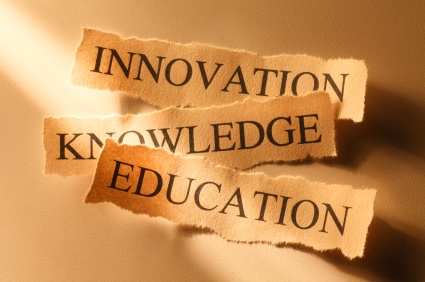‘”Learning and innovation go hand in hand. The arrogance of success is to think that what you did yesterday will be sufficient for tomorrow.”
– William Pollard –
INNOVATIONS IN EDUCATION – INNOVATIVE IDEAS FOR EDUCATION
Over the last decade, Zane and many others have identified growing problems with the way we are currently educating our students, and most of us believe that the effective solutions needed, are be found in more effective innovations in education.
The system of education we use in most countries across the world today remains a system that attempts to mass-produce education. It is a system of education originally designed over 250 years ago, and it is failing to adequately prepare our students for careers, employment and adult lives in the 21st Century.
These concerns are supported by data from research surveying employers, many of which complain that despite academic qualifications, growing numbers of the applicants they interview for positions, are inadequately prepared for employment.
Many that understand these growing problems, believe that the answer lies in providing innovations in education that enable students to be educated as individuals where they can learn at their own individual speed rather than as a crowd, and where the natural skills and abilities that every child has, can be identified and developed, rather than ignored. Our factory-style approach to education today currently denies both. It certainly also marginalizes all students considered to have special education needs, many of whom are often particularly intelligent with unique natural skills and talents of their own.
For any new system of education to be successful, each student needs to understand the relevance of their education in their own lives. And if we are to encourage each student to embrace that all-important quality of self-motivation, then we need to provide them with the tools to enable each to take ownership and control of an Education-to-Employment Pathway that they plan themselves, to guide and motivate them through their educational years.

Zane is committed to planning, designing and developing innovations in education. We believe that solutions such as student-led Education-to-Employment Pathway Planning that we have been working on for the last 3 years will make a significant contribution to enabling each student taking ownership of their education. And we invite others interested in innovations in education to contact us to discuss potential participation.
Having the vision for solutions that can provide innovations in education is challenging if for no other reason than education is one of the most conservative fields. But it is a cause that excites us here at Zane, and one about which we are particularly passionate and committed.
Any company or group wanting to make a difference by developing truly meaningful innovations in education needs to understand and embrace the importance of research, market knowledge and ongoing improvement. Education is a market that is generally averse to potential risk and implications of failure. But no amount of research can ever totally eliminate every aspect of risk, and so we listen to the words of T.S. Elliot who stated that “Only those who will risk going too far can possibly find out how far it is possible to go.”
Many might argue that education should never involve risk, however others that realize the extent of the failings of our current system of mass-production education – and dream of better, would argue that if we dare to dream of better, we need to embrace our vision and be prepared to move forward towards making that dream a reality.
Many of those that oppose changes in education are those with a vested interest in our current education system. Often this is because they perceive their jobs and careers as being endangered. However in reality, those that have been trained to educate our children, are a valuable level of resource of knowledge, expertise and experience, and should surely play an important role in any innovations in education.
Others point to the many EdTech start-ups that have appeared over the last 10+ years as being part of the progression towards a new system of education, however most are not. As many as 90% of those new companies are simply using technology to patch-up the old way of doing things. They are simply providing technology to aid and assist the mass-production of education rather than providing innovations in education.
While technology may play an important role in change or innovating education, it will never constitute the change itself.
10 Key Steps To Successfully Providing Meaningful Innovations in Education
- Identify the purposes of – and reasons for, education in the 21st Century.
- Identify exactly what we want and need education to achieve in the future.
- Identify the ways in which our existing factory-style approach to education is failing today.
- Understand what is required to enable and motivate students to take a more active and motivated approach to their own education.
- Develop an understanding of the needs of society and it’s employers today.
- Appreciate that the knowledge and life skills students require to live successful and meaningful adult lives today, extends beyond simply academic information.
- Recognize that every child has natural skills and talents that need to be developed including those with special educational needs.
- Enable students to create education-to-employment pathways through which they are motivated and able to achieve their greatest individual potential.
- Realize that any effective solution must be progressive and inclusive.
- Accept that meaningful innovations in education will only come about if we are prepared to risk.
Interested in improving education? Why not share . . .
More Articles
If you share our interest and passion for the topic on this page or educational innovation in general, then please contact us using our Contact Page to arrange an introductory conversation.



